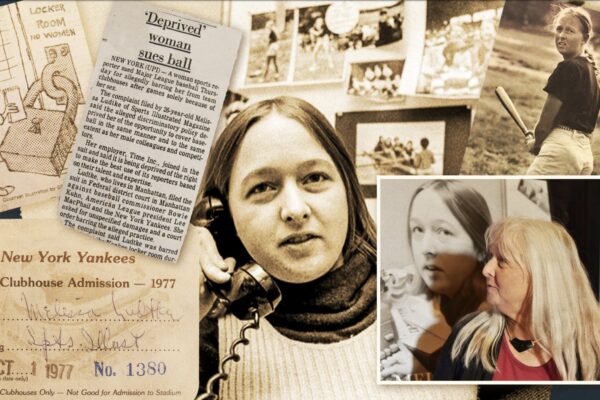By Marlee Ressa | @marleeressa
Sports Capital Journalism Program
TAMPA – As you walk into the Hilton Tampa Downtown Hotel for the U.S. Basketball Writers Association Awards Brunch Friday morning, you can hear the music of voices coming together – young, old, and everything in between. A symphony that can only be formed by a group of people who have known each other for years, and in some cases even decades. The annual occasion almost seems like a family reunion. A chance to grab a bite to eat, drink a sip of coffee and catch up with fellow sports writers before the NCAA Women’s Final Four tips off later in the evening.
Soon after, longtime ESPN college basketball analyst Debbie Antonelli stepped up to the podium to begin the award ceremony and there was a buzz of excitement in the air. Though the recipients of each award had already been announced, the crowd wanted to see friends and colleagues recognized for their work.
This sense of community can best be showcased by the relationships and connections between the recipients of the Rising Star Award and those inducted into the USBWA Hall of Fame. Years and generations may separate these award winners but their love of the same game binds them tightly together.
Last year’s Rising Star recipient, Emily Adams of the Hartford Courant, introduced the 2025 winner, Marissa Ingemi of the San Francisco Chronicle. The award is presented to a member of the media under the age of 30 who impressively demonstrates their ability to cover the women’s game. Adams sets the stage for the kind of character that Ingemi possesses. She states that Ingemi has “given a voice to the communities that are so rarely represented or even considered a part of the traditional sports world.”
When she accepted her Rising Star Award, Ingemi acknowledged her hope to connect with future sports writers. “I really do hope that people and young journalists, especially young women, young queer people who want to be a part of this industry are able to look up to all the people really building this industry up,” she said. To Ingemi, it is important to stress the inclusivity the women’s basketball writing community creates. Both Ingemi and Adams look up to each another, their fellow Rising Star recipients and the rest of the sports writing community. They learn and grow from one another, and as Ingemi said, “We really need to be there for each other.”
The Hall of Fame inductees come from different decades and backgrounds. Doug Feinberg of the Associated Press describes himself as being in the third quarter of his career and the Rising Stars are all in their first quarter. For the past nearly 20 years, Feinberg has been a member of the community writing about women’s basketball. In his acceptance speech, Feinberg thanked the Associated Press for giving him the chance to cover this beat and investing as much as they do in women’s basketball. “Not because of a charity thing,” he said. “It’s the right thing to do. It’s a sport that [they] should be involved in.”
When Feinberg looked to the table where four current and past Rising Stars sat, he had a proud look as he told them they were the future of the business. “It’s so great to see so many young women coming up and being part of the sport, telling great stories,” Feinberg said.
Milton Kent, the second Hall of Fame inductee, has worked in women’s college basketball since he was 19 years old. At the time he was reluctant but said, “Over the nearly 43 years since [then, he has] come to recognize how special this game is and what a pleasure it is to be around it.”
As the USBWA award brunch came to an end, friends met to take pictures and say goodbye before they headed to the Amalie Arena for the NCAA national semifinals. Each left knowing they had a community to lean on, and if nothing else, they would all meet again at the next USBWA event.


